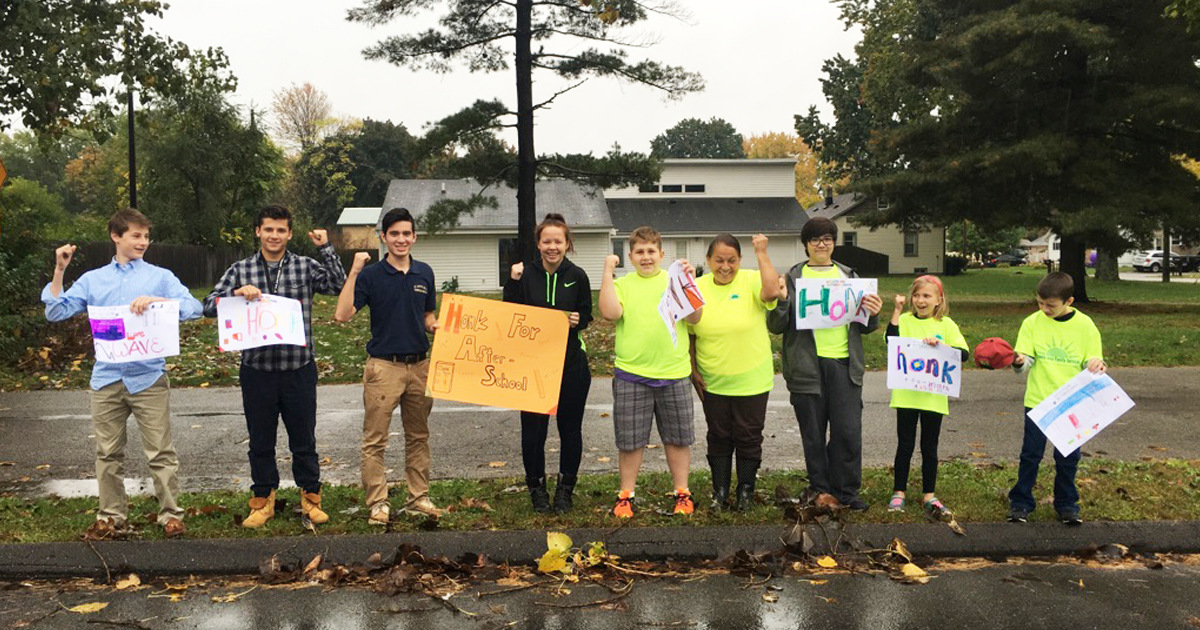But it turns out the science of learning and development (SoLD)— brain science—strongly supports the roles of afterschool professionals, from tutor to yoga instructor to career coach, and many more. What we value about afterschool—positive relationships, youth development programming, hands-on learning— is supported by an understanding of how children's brains learn and change in context with their experiences.
Practitioners often ask me about the evidence for afterschool.
Afterschool professionals love to learn there is external validation for what they believe. All kids can learn. Making time to develop relationships matters. Brain science says so.
LEARNING THE SCIENCE OF LEARNING
We aren't brain surgeons. And consequently, we haven't been taught much about how the brain works, how it learns or how it changes in response to experiences. But we don't have to be brain surgeons to learn that stuff. Our own brains are malleable—in other words, we can learn, adapt and problem-solve. We are capable of learning about brain science. Brain science says so.
And learning some of that stuff can make us better at what we do.
A practical example: A young person has tantrums at the most inconvenient times, like when transitioning from homework time to club activities. His program leader tries to use one of the strategies she learned at a conference, but it doesn't seem to help. She tries strategies suggested by her colleagues, but the situation gets worse.
Sound familiar? This scenario can be frustrating for everybody involved and, worse, might result in the young person being dismissed from the program if his behaviors are deemed a safety risk.
Most training available to afterschool professionals, such as mentioned above, present strategies or products. This approach addresses the "How?" but overlooks the "Why?" Science explains why.
Professional learning that starts with the "Why" helps participants understand the science behind strategies and products. This leads to more effective implementation, building the capacity of afterschool professionals to adapt or adopt strategies as needed. In Ohio, we are doing a little of this. If the program leader mentioned earlier had participated in Ohio Afterschool Network's Trauma Brain training, for example, she would have learned how part of the brain responds to certain situations as a result of prior traumatic experiences. That knowledge might have helped her find ways to prevent the young person's poor reaction to transitions. Our expert trainer would have provided practical strategies for calming the child, and the program leader would have had the knowledge to recognize other possible solutions.
As a field, we aren't offering enough training opportunities like that, despite a growing emphasis on choosing evidence-based programs and products. The Ohio Department of Education is making amazing strides in promoting the science of reading— teaching teachers how the brain learns to read and aligning instruction and resources to that understanding. But little, if any, of that $77 million effort has touched afterschool professionals. Similar opportunities are likely missed in states across the nation.
THE SCIENCE OF PROFESSIONAL LEARNING
Much of our common practice in training for afterschool professionals is not aligned with the science of learning. Not only is science not a topic of training, but the way we typically train staff isn't likely to improve their practice. Science says so.
The federal Every Student Succeeds Act codifies the qualities of effective professional development, based on the science of learning. Our typical oneand-done, make-and-take, check-thebox brands of training for afterschool professionals do not lead to changes in practice, according to the same body of research ESSA draws upon.
Professional development that works has common features. It focuses on a specific topic that is relevant to participants' programs and the needs of the kids. One topic is covered in short sessions over a period of time, with learning applied on the job. It's collaborative.
Why don't we have access to scientifically sound professional development? Well, for one thing, we aren't demanding it. But as we learn more, together, about the science of learning, we should be thinking about how it applies to young people, our staff members and ourselves.
Tricia Moore is Director of Partnerships & Engagement, EnvisionEdPlus, LLC, and Advocacy Chair for the Ohio Afterschool Network.
This article originally appeared in the Spring 2020 issue of AfterSchool Today.



